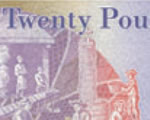 Go to main content
Go to main content
Archive Website of the UK government
Please note that this website has a UK government accesskeys system.
Main menu
Page menu
Money, tax and benefits

Tax efficient giving to charity: the basics

If you want to donate to a charity or Community Amateur Sports Club (CASC) and you're a UK taxpayer, there are a range of tax incentives and schemes available to help you get the most from your donation.
How you can give in a tax efficient way
There are a number of tax efficient ways to give to charity as an individual. You might be able to claim some tax back using these methods.
In order to claim these, the organisation you give to must be recognised as a charity for tax purposes by HM Revenue & Customs (HMRC). You can check this by asking the charity to confirm that it has an HMRC charity reference number.
If your donations are under the Gift Aid scheme, your chosen charity can also claim tax back (known as tax relief) from the government.
Depending on the type of gift you make, you may have to make a claim to receive the tax relief (either on your Self Assessment tax return or by contacting your own Tax Office).
The different ways you can give in a tax efficient way are summarised below.
Giving through Gift Aid to a charity or a CASC
Gift Aid is an easy way to help charities and CASCs get extra money on your cash donations. Your Gift Aid donation is treated as if basic rate Income Tax has already been deducted by the donor. Charities and CASCs can then reclaim that tax from HMRC.
To make a Gift Aid donation, you must pay at least as much Income Tax (and/or Capital Gains Tax) as the amount of tax reclaimed by the charity or CASC. This is currently 25 pence for every pound you donate.
Basic rate tax is 20 per cent, so this means that if you give £10 using Gift Aid, it’s worth £12.50 to the charity. For donations between 6 April 2023 and 5 April 2011, the charity or CASC will also get a separate government supplement of three pence on every pound you give.
If you make a number of Gift Aid donations, you must pay enough UK tax on the total amount of those donations.
If you don’t pay enough tax you may have to pay HMRC any shortfall in tax paid.
Relief for higher rate taxpayers
If you pay higher rate tax and make a donation through Gift Aid you can claim some tax back.
Giving through your pay or pension to charity
You can give money to charity directly from your pay or company/personal pension using the Payroll Giving scheme.
It costs you less because your donation is given to charity from your gross salary before any tax is taken off - so you don't pay tax on it.
You can give to as many charities as you want and you can cancel your Payroll Giving agreement at any time.
Giving assets to charity
Income Tax relief
Income Tax is a tax on your income. Your income includes the earnings you make from employment, your pension, interest on savings or income from rentals or a trust.
You can claim Income Tax relief and as a result lower your tax bill if you:
- give land or buildings in the UK or qualifying shares to a charity
- sell these to a charity at less than their market value
Qualifying shares include those listed on any stock exchange.
Income Tax relief is not available if you are giving land, buildings or shares to a CASC.
Capital Gains Tax relief
Capital Gains Tax is a tax on the gain or profit you make when you sell or give away something that you own. You'll get relief from Capital Gains Tax when you:
- give any asset to a charity or CASC
- sell any asset to a charity or CASC for less than its market value
Leaving gifts in your will to a charity or CASC
If you leave a gift to a charity or CASC in your will, its value will not be included when valuing your estate (your money, possessions and property) for Inheritance Tax purposes. Inheritance Tax is usually paid on an estate when somebody dies.
Gifts made to a charity in the seven years before your death are exempt from Inheritance Tax.
Keeping records of your donations to charity
You must keep records of your donations to charity to make sure that you claim the correct amount of tax relief and pay the right amount of tax.
For every tax year, you should keep the following records:
- details of Gift Aid donations showing the date, the amount and the charities or CASCs involved
- legal documents showing the sale or transfer of assets to charity - including share transfer documents or certificates or land transfer documents
- any documentation from a charity asking you to sell land or shares on its behalf
Contacting the HMRC Charities Helpline
For more help you can contact the Charities Helpline.
 Facebook
Facebook Twitter
Twitter StumbleUpon
StumbleUpon Delicious
Delicious Reddit
Reddit
